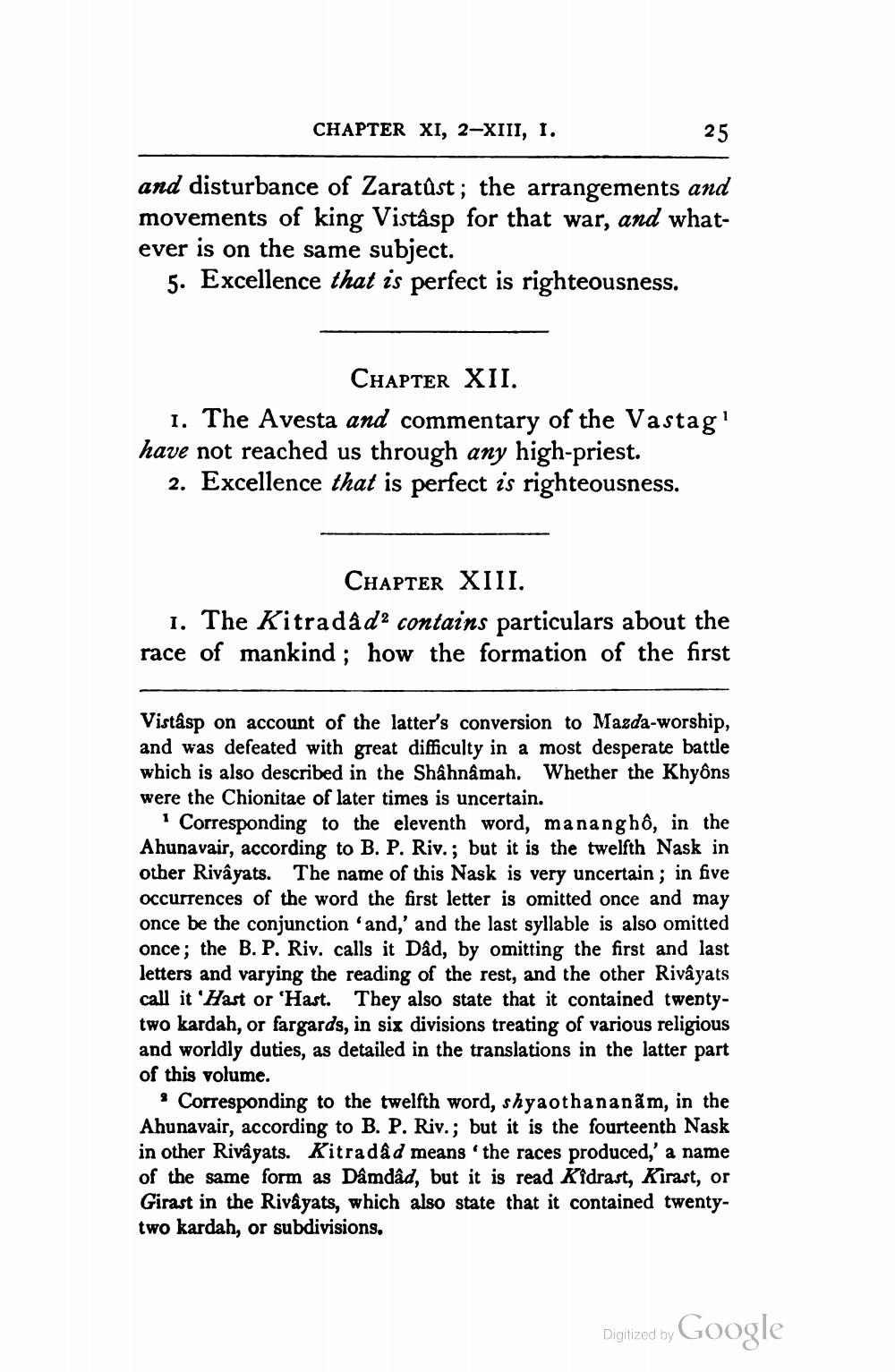________________
CHAPTER XI, 2-XIII, 1.
25
and disturbance of Zaratûst; the arrangements and movements of king Vistâsp for that war, and whatever is on the same subject.
5. Excellence that is perfect is righteousness.
CHAPTER XII. 1. The Avesta and commentary of the Vastag 1 have not reached us through any high-priest.
2. Excellence that is perfect is righteousness.
CHAPTER XIII. 1. The Kitrada da contains particulars about the race of mankind; how the formation of the first
Vistasp on account of the latter's conversion to Mazda-worship, and was defeated with great difficulty in a most desperate battle which is also described in the Shahnamah. Whether the Khyôns were the Chionitae of later times is uncertain.
1 Corresponding to the eleventh word, mananghô, in the Ahunavair, according to B. P. Riv.; but it is the twelfth Nask in other Rivayats. The name of this Nask is very uncertain; in five occurrences of the word the first letter is omitted once and may once be the conjunction and,' and the last syllable is also omitted once; the B.P. Riv. calls it Dâd, by omitting the first and last letters and varying the reading of the rest, and the other Rivâyats call it 'Hast or 'Hast. They also state that it contained twentytwo kardah, or fargards, in six divisions treating of various religious and worldly duties, as detailed in the translations in the latter part of this volume.
. Corresponding to the twelfth word, shyaothananām, in the Ahunavair, according to B. P. Riv.; but it is the fourteenth Nask in other Rivayats. Kitradád means 'the races produced,' a name of the same form as Damdâd, but it is read Kidrast, Kirast, or Girast in the Rivayats, which also state that it contained twentytwo kardah, or subdivisions,
Digitized by Google




